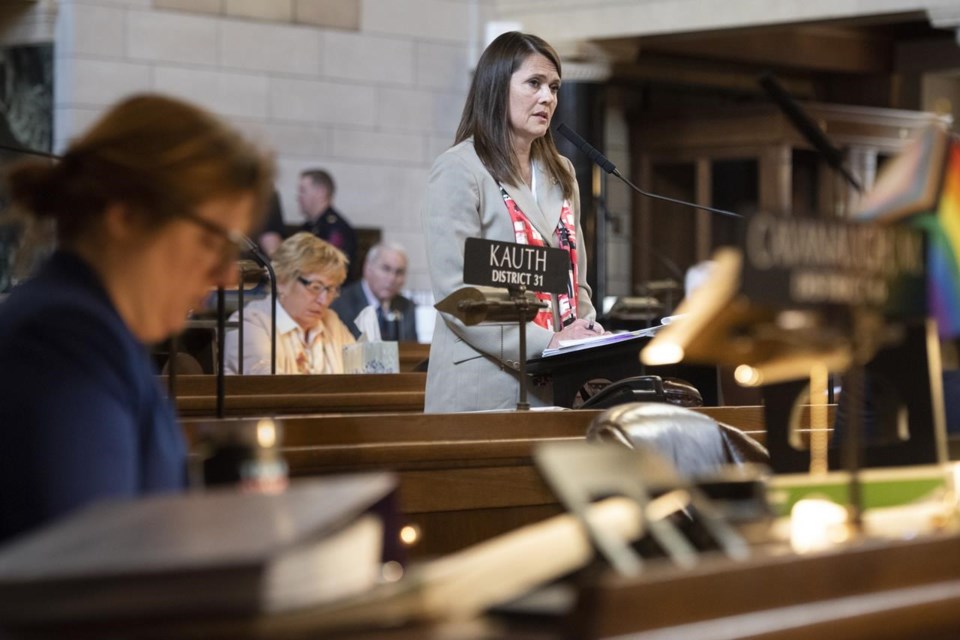LINCOLN, Neb. (AP) — As promised, the American Civil Liberties Union is suing to block the Nebraska Legislature’s most controversial measure combining an abortion ban with restrictions on gender-affirming care for minors, just days after it was signed into law.
The lawsuit, filed in state court Tuesday by the ACLU on behalf of Planned Parenthood and one of its doctors who performs abortions in Nebraska, argues that the law violates a state constitutional requirement that legislative bills stick to a single subject. The lawsuit is also asking for an injunction to block enforcement of the trans health and abortion restrictions until the court case is decided.
The new law will prevent people under 19 from receiving gender-confirming surgery and restrict the use of hormone treatments and puberty blockers in minors when those restrictions go into effect Oct. 1. It will put the state’s chief medical officer — a political appointee who is an ear, nose and throat doctor — in charge of setting the rules for hormone therapies for those minors already receiving that therapy at the time the measure goes into effect and those who demonstrate a “long-lasting and intense pattern of gender nonconformity or gender dysphoria.”
The law also imposed an immediate ban on abortions after 12 weeks of pregnancy, with exceptions for rape, incest and to save the life of the mother. That ban was shoehorned into the trans care bill as an amendment after a separate bill to ban abortion at about six weeks failed to overcome a filibuster.
“We believe the combination of those bans violated the clear text of our state’s constitution,” ACLU Nebraska Executive Director Mindy Rush Chipman said. “The bottom line is that senators do not get to pick and choose which constitutional requirements they will follow when making laws.”
The proposal restricting gender-affirming care was the flashpoint of an epic filibuster led by Omaha Sen. Machaela Cavanaugh. She and a handful of progressive allies slowed the business of passing laws to a crawl by introducing amendment after amendment to nearly every bill that made it to the Senate floor. That sent leadership scrambling to prioritize which bills to push through.
Lawmakers opposed to the hybrid bill had warned that it would face a lawsuit if passed.
The ACLU’s lawsuit argues that the Legislature wrongly logrolled two distinct, unrelated subjects into one combined bill.
“The single-subject rule prevents logrolling, namely, the passage of legislation that, if standing alone, could not muster the necessary votes for enactment,” the lawsuit reads. “The single-subject rule also promotes transparency in the legislative process and accountability by lawmakers.
“When a bill contains more than one subject, it is impossible to know whether the lawmaker’s vote signaled support for — or opposition to — the entire bill, or just some of it.”
Omaha Sen. Kathleen Kauth, a freshman lawmaker who introduced the trans health restriction bill that later morphed into the hybrid bill, said she’s confident it will survive legal scrutiny.
“I mean, it’s called the ‘Let Them Grow Act,’” she said of her original bill. “I think restricting abortion is very much in that same subject.”
Gov. Jim Pillen declined to comment, citing his office’s policy of not commenting on pending litigation.
Margery A. Beck, The Associated Press


